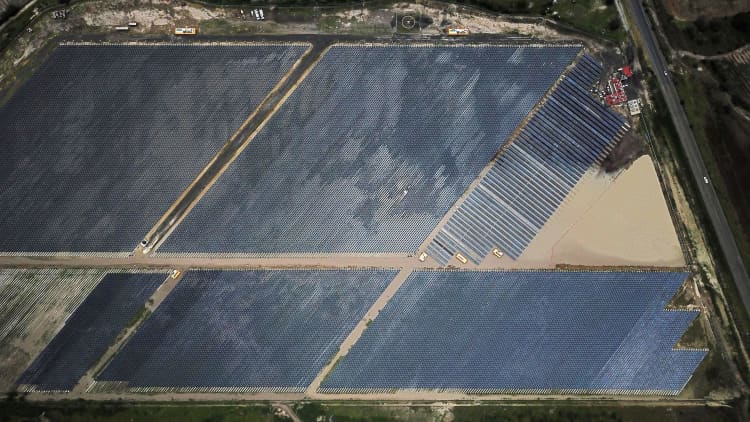
Around the world, big businesses and governments are searching for ways to increase their use of renewable sources of energy and, at the same time, reduce their impact on the environment.
Organizations such as REN21, which describes itself as an "international policy network," play a significant role in this discussion and debate.
REN21 members include governments, industry associations, non-governmental organizations and academic institutions.
It was set up in 2004 following the International Conference on Renewable Energy in Bonn and issues reports "to help drive the global transition to renewable energy."
Rana Adib is REN21's executive secretary. "Governments and intergovernmental organizations are part of REN21 and the network," she told CNBC's Sustainable Energy. "We work with them to generate… knowledge but also to spread the information we are producing and to inform policy making," she added.
REN21's reports are available online and are free to view. Looking at the bigger picture, shining light on data in a concise and clear way will be a crucial tool if attitudes are to change and the world is to transition to more renewable sources of energy.
"If we look at the energy that we consume globally we need to keep in mind that most of it, actually more than 80%, is used for heating and cooling as well as for transport," Thomas Andre, a project manager and analyst at REN21, told CNBC, adding that renewables were "barely increasing" in those two sectors.
"This imbalance is directly linked to another one, which is the lack of political attention in those two sectors as opposed to the electricity one," Andre said. "So we need to move from an electricity transition to an energy transition."
REN21 is one of several bodies focusing on renewable energy and the environment. Others include Future Earth, which in the words of its executive director, Amy Luers, is "an international network of researchers and innovators working together to advance the global sustainability agenda."
Luers told CNBC that as well as responding to requests from the United Nations for policy briefs, Future Earth also worked with cities, local governments, the private sector and civil society.
"What our community does is help to understand complex issues and… look at trade-offs and synergies and find solutions," she added.




